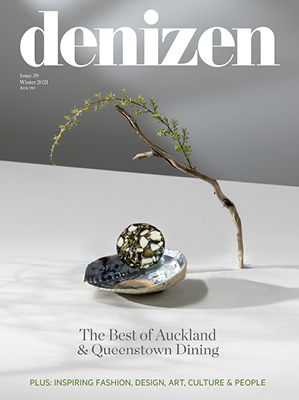While reducing the use of single-use plastic has long been a key focus for many of us, we think it’s always helpful to have a refresh of suggestions targeted to various aspects of our lives — especially as new products and technologies are released.
Another one of the many unfortunate side effects of the Covid-19 pandemic has been the rise in plastic products being disposed of in less than ideal ways. While personal protective equipment is, of course, often life-saving, a monthly estimated use of 129 billion medical face masks and 65 billion gloves globally is resulting in widespread environmental contamination.
While we in New Zealand are very lucky to be, at this point in time, mostly free of the day-to-day struggles of Covid, it’s still important we all do our part to make sure increased single-use plastic usage isn’t the norm.
From the kitchen to the bathroom to the wardrobe, here are some ways throughout the home and the day that we can individually reduce our plastic usage.
In the bathroom:
Use shampoo and conditioner bars.
Clean, healthy hair, and without a plastic bottle in sight, shampoo and conditioner bars are the future of eco-friendly hair care. Ecostore recently released its first batch of the clever products to very eager uptake; made from plant and mineral-based ingredients, they are vegan, 100 percent soap-free and have a mild pH. Ethique is another brand that offers not only shampoo and conditioner bars, but solid facial and body cleansers, plus moisturising blocks too.
For travelling, eco-conscious blogger Ethically Kate recommends cutting just what you need off your haircare bars, and drying them off before storing in a reusable container.
Other personal hygiene swaps you can make if you’d like to reduce plastic:
Use a moon cup.
Use a stainless steel safety razor.
Use a soap bar rather than body wash.
Use a wooden or plant based toothbrush.
Use a natural deodorant with cardboard packaging.
Use cotton face cloths rather than face wipes, and simply wash them after use.
Buy beauty products that are packaged in glass and/or use recycling programmes. Brands to look out for are Emma Lewisham, Rawkanvas, RMS Beauty and Aleph Beauty.
In the kitchen:
Wrap food and leftovers with compostable or biodegradable food wrap products.
Technology has advanced to impressive degrees when it comes to replacements for cling wrap. Local company Compostic offers a compostable “plastic”-like wrap that is spookily close to the real thing, yet breaks down in 24 weeks in a home compost and 12 commercially. If a compost bin isn’t within reach, bee’s wax wrap is a good reusable option, and If You Care offers compostable baking paper, available from Huckleberry.
Other food and kitchen hacks for reducing plastic:
Use wooden scrubbing brushes and kitchen tools.
Use biodegradable bin liners.
Use a keep cup.
Use a reusable drink bottle.
Use a glass or metal straw.
Take your own container when ordering lunch to takeaway.
Take a mason jar and reusable straw for smoothies.
Take your own container to bulk bin stores (such as Sprout the Grocer or GoodFor Wholefood Refillery) to replenish pantry stocks of dried goods, spices and snacks.
In the wardrobe:
Wear a reusable face mask.
With the government mandating mask-wearing on Auckland’s public transport and on domestic flights, it’s time to make mask-wearing a regular habit again if you have dropped that in the interim. Rather than contribute to the many single use masks that are landing in our oceans, purchase one or two reusable cloth masks — find plenty from both local and international makers here.
Prioritise buying clothes made from natural fibres.
If you’re after some new threads, make sure you look at the care label if plastic is something you’re looking to banish from your life. Polyester and cotton-blends are known as the styrofoam of the fashion world – impossible to recycle, when clothing made from this ends up in landfill it’s in there for the long haul. Materials like wool, silk, cotton, linen, merino, Tencel (made from wood pulp), hemp and even leather – provided it’s vegetable-dyed – are biodegradable options.
Carry a reusable bag in your handbag.
Pretty self-explanatory — and with the plethora of canvas bags it’s possible to accumulate, why not keep one at the office too, just in case?









